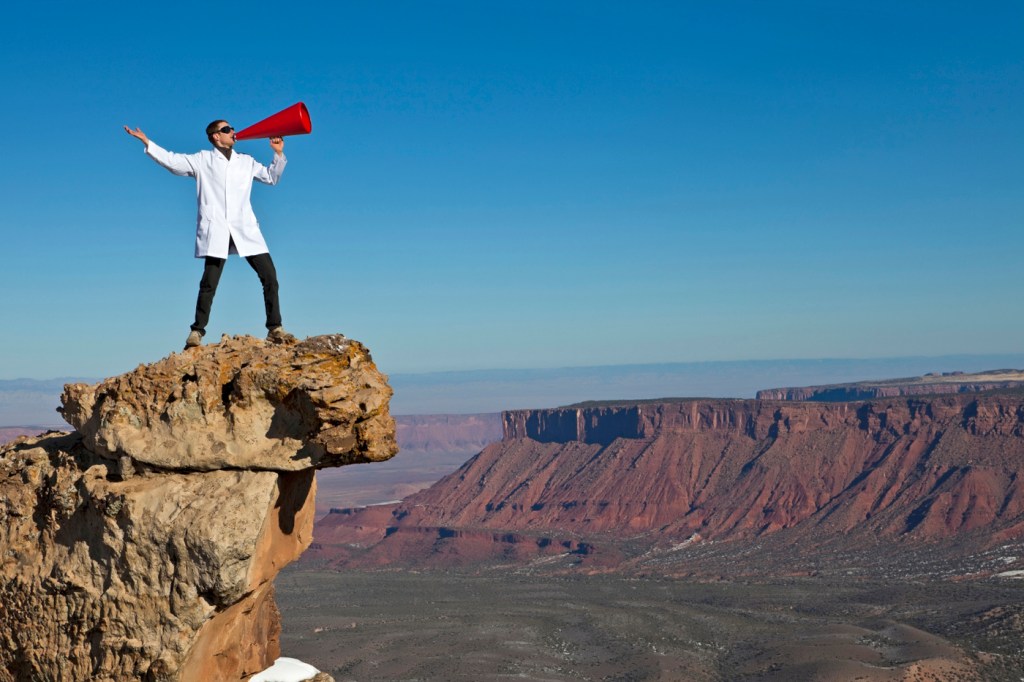Climate change forces scientists to speak up

A decade ago, whenever the topic of climate change would come up, Northeastern’s Brian Helmuth would focus solely on the scientific facts while deliberately ignoring the potential long-term societal implications.
It’s the way that Helmuth, whose research centers on climate change’s impact on coastal ecosystems, was trained. But, he recalled, “It was so dry. No one would ever listen and it didn’t enact any change.”
Now—as those previously hush-hush impacts of climate change become more and more obvious—Helmuth has adopted a different tone.
“Since my kids are going to inherit this planet, I decided that I have to talk about the implications and not just the scientific facts,” said Helmuth, a professor of environmental science and public policy with joint appointments in the College of Science and the School of Public Policy and Urban Affairs. “I am careful that if I say something is true, I make sure it can be backed up by science. But I’m not afraid now to also say ‘Here is what is going to happen if we don’t act on that information.’”

Professor Brian Helmuth Photo by Brooks Canaday/for Northeastern University
Walking the line
Finding the balance between engaging in a thoughtful debate and being perceived as Chicken Little exclaiming the sky is falling is something climate change scientists wrestle with more and more. They want to make sure people are properly informed on what is happening and what can be done, but don’t want to be perceived as over-exaggerating alarmists, as featured in this story published in Esquire last month.
“There is this view that if you don’t take an extreme view, then it is not being communicated well,” said Auroop Ganguly, an associate professor of civil and environmental engineering.

Associate professor Auroop Ganguly Photo by Brooks Canaday/for Northeastern University
An expert in climate extremes and water sustainability, Ganguly considers himself an optimistic person. But, much to his surprise, he finds self-doubt creeping into his mind when debating certain aspects of climate change, such as adaptation, how society is adjusting to climate change’s impact, and mitigation, efforts to reduce greenhouse gas emissions.
“Adaptation is where I do see a lot of hope,” Ganguly said. “I wouldn’t say it is happening at the pace it needs to, but it is happening. When I think about mitigation, that is where, unknown to myself until recently, I have this level of pessimism.”
Matthew Nisbet, an associate professor in the College of Arts, Media and Design who studies the overlap between communications and science and technology, said that getting the general public interested in climate change won’t come by speaking more urgently on the issue.

Associate professor Matthew Nisbet Contributed photo
“In some ways, if scientists do choose to be more urgent, more vocal, and potentially more political, there is a possibility of the message backfiring and undercutting public faith in the actual science,” said Nisbet.
Instead, the focus needs to be on a broad array of solutions that do not fit easily with any particular political agenda. Examples include emphasizing the many benefits of investing in clean energy innovations, high tech farming practices, more resilient cities and communities, and more equitable, sustainable economies.
Helmuth noted that climate change scientists have to consider their audience. “Sharing stories is the only way to get people to listen, and you have to make it as local as possible,” he said.
It’s all about location
The local and regional level is where all three experts agreed scientists can see the benefit of their climate change messaging. Nisbet said getting out and meeting with people who are seeing direct impacts of climate change—like fishermen and farmers—not only informs the scientists but gets stakeholders involved in solution planning.
“The idea is that instead of one-way communication by engaging the public through the press, scientists invest in local forums and initiatives where relevant groups come together to discuss a problem and consider solutions,” said Nisbet, who serves on a U.S. National Academies committee studying these strategies and advises the American Association for the Advance of Science on the topic. “The public needs to have an active role in the decision-making and solution process.”
Helmuth has already begun a project to learn more about what climate change is doing at the local level, and has tasked Northeastern undergraduate student Megan Reilly with traveling to coastal New England towns to hear residents’ stories.
“We want to record these stories on a very local level and help the story teller understand how what they are seeing makes sense because it fits into the larger context of global climate change,” Helmuth said.